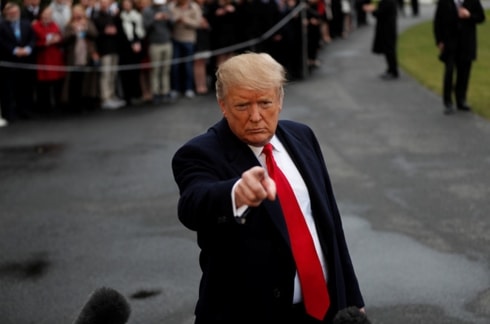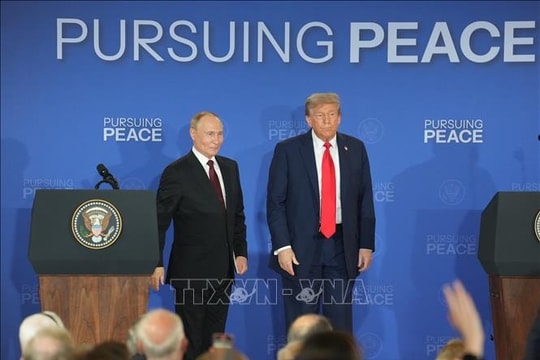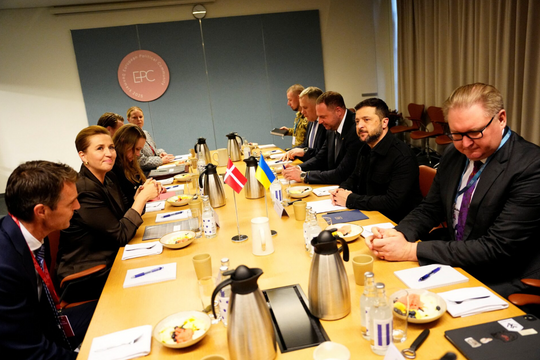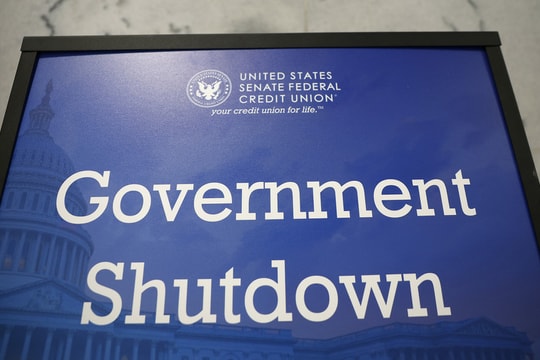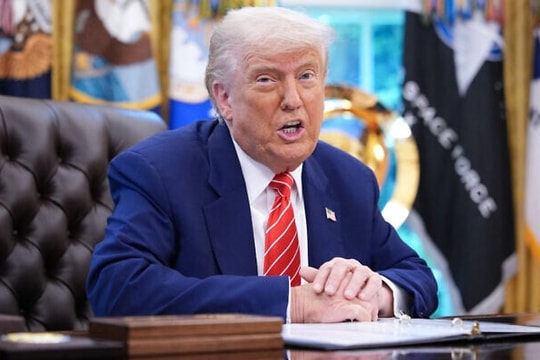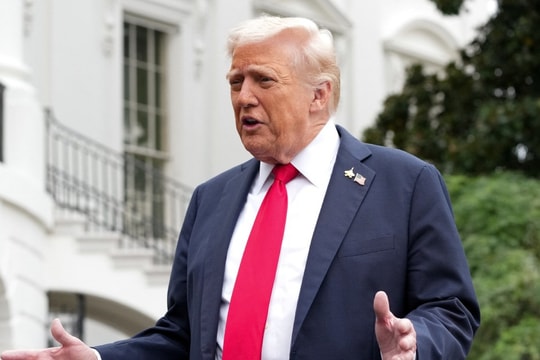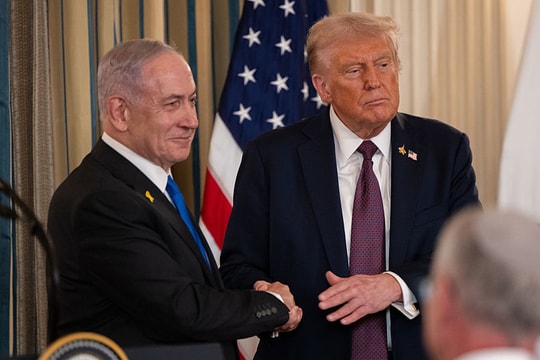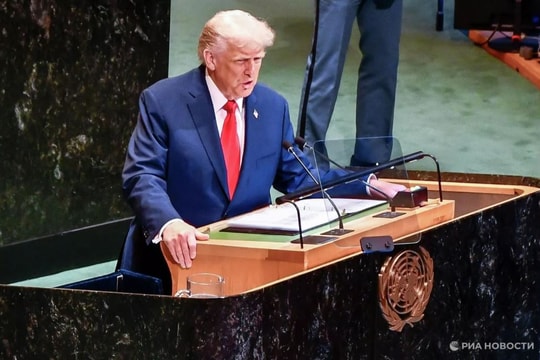Decoding Trump's hidden meaning when canceling new sanctions against North Korea
President Trump's cancellation of new sanctions on North Korea is part of his intention to salvage the diplomatic achievements he has made over the past year.
US President Donald Trump surprised his administration officials on March 22 by extending an olive branch to North Korean leader Kim Jong-un, despite North Korea considering suspending talks with the United States and weighing whether to resume missile and nuclear tests if Washington does not make concessions.
|
| President Donald Trump speaks to the press at the White House on March 22. Photo: Reuters |
Internal conflict
On his Twitter page, Mr. Trump announced the reversal of large-scale sanctions against North Korea, announced by the US Treasury Department a day earlier. "Today, the US Treasury Department announced additional sanctions to existing sanctions against North Korea. I have ordered the withdrawal of those additional sanctions," Mr. Trump wrote on Twitter while at the Mar-a-Lago resort in Florida.
Explaining the move, White House press secretary Sarah Huckabee Sanders said: “President Trump likes leader Kim Jong-un and he doesn't think sanctions will be necessary.”
President Donald Trump’s announcement caught many senior administration officials by surprise, highlighting another example of the unpredictability of the US leader’s decisions. Initially, many misunderstood that President Trump was referring to the Treasury Department’s sanctions on two Chinese shipping companies, Dalian Haibo and Liaoning Danxing, announced on March 21 for allegedly helping North Korea evade sanctions. But it was only hours after the tweets appeared that it emerged that Trump was referring to a new, broader set of sanctions that the Treasury Department had yet to announce.
Bruce Klingner, a senior fellow at the Heritage Foundation, a US policy think tank, said the way Trump made the statement and the confusion it created could hurt advisers and aides in charge of North Korea and US allies in the region. The rapid change in President Trump's policy on North Korea has raised doubts about whether statements by his subordinates can be easily reversed at the time of announcement and whether they are still authorized to speak for the President.
Some say the president is determined to prevent his hard-line advisers from undermining what he sees as his greatest foreign policy achievement: easing tensions with North Korea and creating a chance for a historic deal.
With US-North Korea negotiations showing signs of stalling, many Democrats and some Republicans have voiced their opposition, arguing that the surprise move will only damage the US position, which has pursued maximum pressure to force North Korea to abandon its nuclear and missile programs. The incident has exposed the dysfunction in the White House policy-making process, where the President's Twitter feeds have more influence than deliberate cooperation among administration figures.
Shortly after Trump's announcement, Republican Senator Cory Gardner, a member of the Senate Foreign Relations Committee who has been pushing for increased US sanctions on North Korea, said: "The Treasury is right, sanctions should be imposed under US law. Strategic patience has failed. Don't make this mistake again."
Trump's hidden meaning
Observers say that President Trump's announcement of a reversal of sanctions on North Korea is part of his attempt to salvage a policy that he declared a success more than a year ago, after the first US-North Korea summit in Singapore. "There seems to be a perception in both Seoul and Washington that the negotiations are at a dead end, so a new push is needed," said Keithine Lee, a research fellow in the Asia-Pacific Security Program at the Center for a New American Security. "After all, President Trump may be trying to salvage what remains of what he sees as his own diplomatic legacy."
Channel New Asia quoted Harry J. Kazianis, director of defense studies at the Center for the National Interest (CNI, USA), as saying that President Trump's tweet could be an attempt to reduce tensions between Washington and Pyongyang, as well as the risk of North Korea withdrawing from negotiations. "Mr. Trump's cancellation of sanctions could be an attempt to make North Korea change its mind."
Contrary to the above view, Mr. Bruce Klingner, another expert on North Korea, affirmed that although the US Treasury's proposed sanctions were blocked, Mr. Trump's announcement on Twitter seemed to imply that the US was always ready to impose strong measures on North Korea. According to analyst Bruce Klingner, the President's words signaled that the US Treasury's sanctions campaign to put maximum pressure on North Korea would be "the strongest ever."
Trump’s decision to postpone sanctions against North Korea comes more than a week after North Korean Vice Foreign Minister Choe Son Hui sharply criticized US National Security Adviser John Bolton and US Secretary of State Mike Pompeo at a press conference in Pyongyang. Although he accused the two of creating an “unfriendly and suspicious atmosphere,” Choe Son Hui also avoided criticizing President Donald Trump.
According to some US officials, after the second US-North Korea Summit in Hanoi ended without reaching a common agreement, President Trump is still determined to pursue a negotiation strategy with North Korea, even believing that leader Kim Jong Un will sooner or later accept the US's request. President Trump wants to convince Kim Jong Un that despite the skepticism of some officials in the US administration, he is still the final decision maker and always wants to reach a landmark agreement with North Korea.
Some observers believe that President Trump's goodwill gesture, combined with North Korea's cautious attitude, proves that differences in viewpoints have not "suffocated" hope for new negotiations because neither Washington nor Pyongyang wants to "permanently destroy the newly built diplomatic bridge" between the two sides./.

